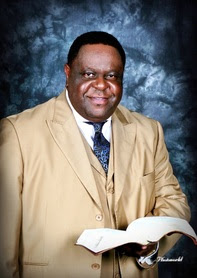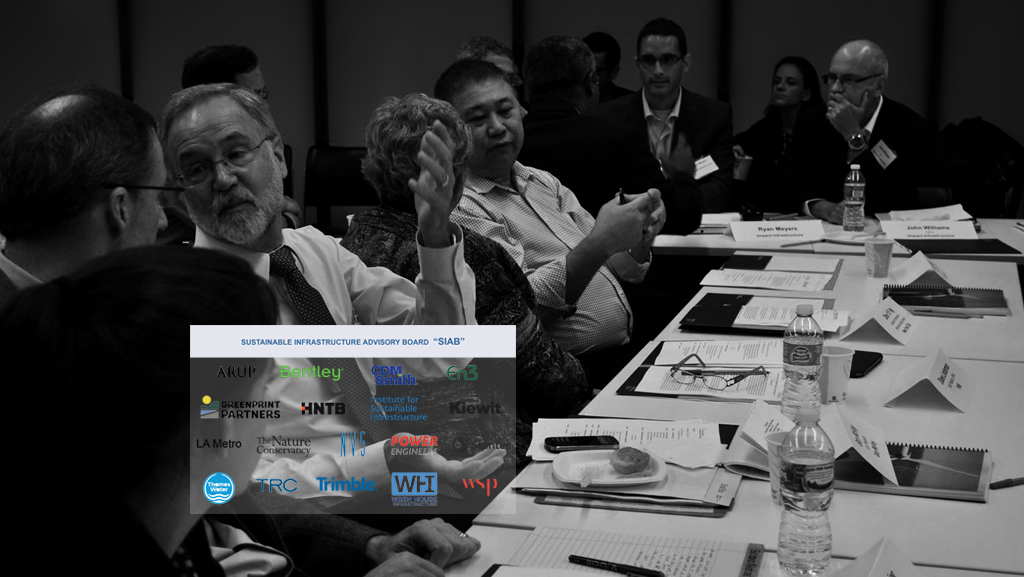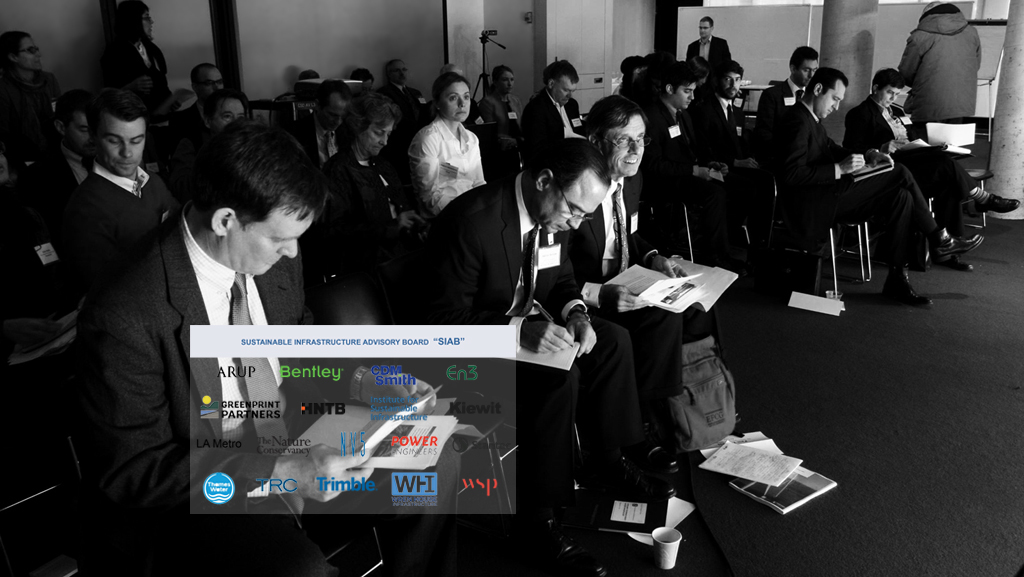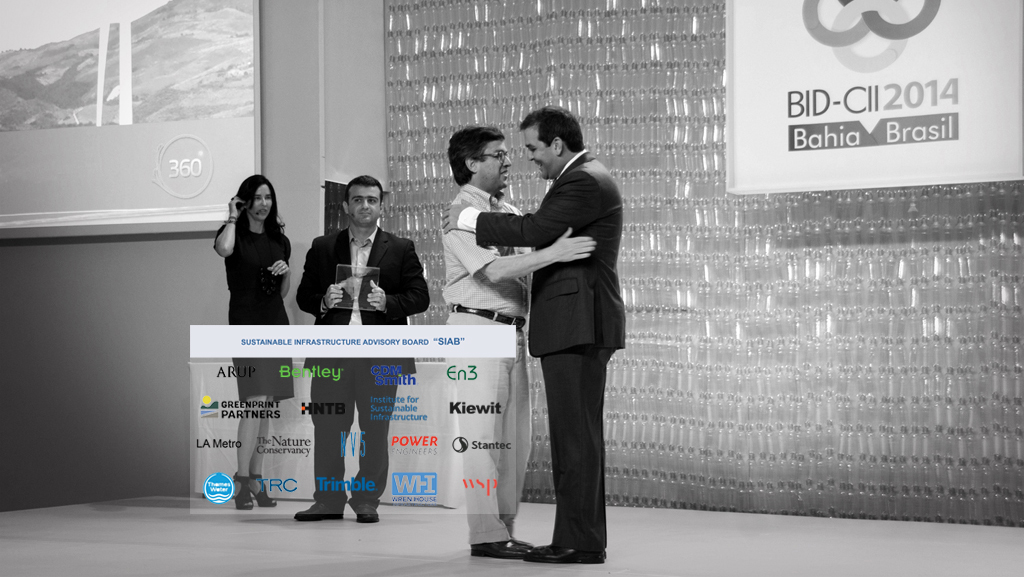Designing Equitable Green Infrastructure with Mission-based Communities in St. Louis, MO
September 24, 2021 11:00 am – 12:30 pm EST | 8:00 am – 9:30am PST | Watch recording
This session will introduce the Greenprint Partners model and process of designing equity-centered green infrastructure in collaboration with 12 local mission-based communities in St. Louis, and with support and financial incentives from the St. Louis Metropolitan Sewer District. Speakers will discuss green infrastructure through a portfolio of projects where equitable siting and collaborative design helps address social, environmental and climatic goals to support vibrant communities while managing rainwater and transforming green spaces to capture stormwater runoff, and preventing pollution to the Mississippi River.
Moderated by Jill Desimini, Associate Professor of Landscape Architecture, Harvard GSD
Speakers:
April Mendez, CEO, Greenprint Partners
Jim Sparber, Vice President, Engineering, Greenprint Partners
Dr. Donald McNeal, Senior Pastor, Hopewell Missionary Baptist Church
Bruce Litzsinger, Assistant Director, Planning, Engineering Department, Metropolitan St. Louis Sewer District
Bios
April Mendez
April Mendez is the CEO of Greenprint Partners (WBE, B-Corp), a green infrastructure project development and consulting firm that delivers equitable, community-driven, multi-benefit stormwater solutions. She leads a national team of urban planners, engineers, community organizers and finance professionals on a mission to get the most good out of green infrastructure. Prior to founding Greenprint, April co-founded and spent 13 years building Interfaith Youth Core (IFYC), a $4.5 million nonprofit that is transforming the way higher education engages religious diversity. She has also worked for the Steans Family Foundation and founded an organization dedicated to developing social entrepreneurship among minority youth in some of Chicago’s toughest neighborhoods. April holds a B.A. from Carleton College and completed MBA coursework at the Kellogg School of Management at Northwestern University focusing on social innovation.
Jim Sparber, P.E.
Dr. Donald McNeal
Dr. McNeal currently serves as the Senior Pastor of Hopewell Missionary Baptist Church in Saint Louis, Missouri. He has been pastoring for 50 years in multiple churches in Saint Louis, Missouri; Columbia, Missouri; and in Houston, Texas and in Ivan, Arkansas. He is also a licensed Texas and Federal Attorney at Law, with over 32 years of trial experience.
Dr. McNeal finished high school at the age of 16, and completed his Bachelor of Business Administration Degree when he was 19 years of age. He earned his Doctor of Ministry Degree from The Samuel DeWitt Proctor School of Theology at Virginia Union University. He also earned a Juris Doctorate Degree from the University of Missouri – Columbia School of Law. Dr. McNeal has served as an adjunct faculty member at Eden Theological Seminary and the Thurgood Marshall School of Law at Texas Southern University.
He has been married to Deborah Denise Jackson mcNeal for 50 years, and has three gifted and beautiful daughters: Syreeta LaShawn McNeal, Esq.; Janel Marie McNeal, and Dion Renee McNeal Lucas.
Bruce Litzinger, P.E.
Bruce Litzsinger is the Assistant Director – Planning for the Engineering Department of the Metropolitan St. Louis Sewer District. In his current position, he manages a staff of 60 employees in the Planning Division. This Division is responsible for the District’s Capital Improvement Program, Wastewater and Stormwater Program Planning, Development Review and Permits, and the District’s GIS system. Planning also implements the District’s Rainscaping Grants Program for the combined sewer area. Bruce has 34 years of environmental experience working for utilities, and has been in management positions with the District for 24 years. He earned his M.B.A. degree from Lindenwood College and his B.S. degree in Chemical Engineering from the University of Missouri-Rolla.
Jill Desimini
Jill Desimini is Associate Professor of Landscape Architecture and teaches in the core studio sequence.
Desimini is trained in landscape architecture and architecture, and has practiced professionally in both fields. Prior to joining the full-time faculty at the GSD, she taught in the second term core studio of the MLA Program at the GSD and at Northeastern Universitys School of Architecture. She was formerly Senior Associate at Stoss Landscape Urbanism, where she managed the firms efforts on the Lower Don Lands in Toronto, the Bass River Park on Cape Cod, and the Isabella Stewart Gardner Museum in Boston. Her work has received numerous awards including a finalist entry in the Van Alen Urban Voids competition, a Narendra Juneja Medal and an ASLA certificate from the University of Pennsylvania, and a Selected Professions Fellowship from the American Association of University Women. She holds a Master of Landscape Architecture and a Master of Architecture from the University of Pennsylvania and a Bachelor of Arts in Urban Studies from Brown University.
Desimini’s research focuses on landscape strategies to address the conditions of shrinking cities. Post-industrial cities of North America are losing population and investment. In many, large patches of land have been cleared and abandoned buildings removed. She investigates the latent opportunities found in these voids. The work attempts to systematically re-purpose out-dated infrastructures and unlock untapped resources. The re-settlement tactics aim to create open space frameworks, management plans, and development tools that allow for positive ecological function and the re-establishment of productive economic, social, and cultural agendas. The endeavors address multiple scales from school gardens to individual lots and blocks to cities and regions.









Join us now ZPH Workshop: #Sustainable #Infrastructure for #ClimateAction in-person & ZOOM https://t.co/fCjkr0Ykrh
About 2 years ago from Zofnass Program's Twitter